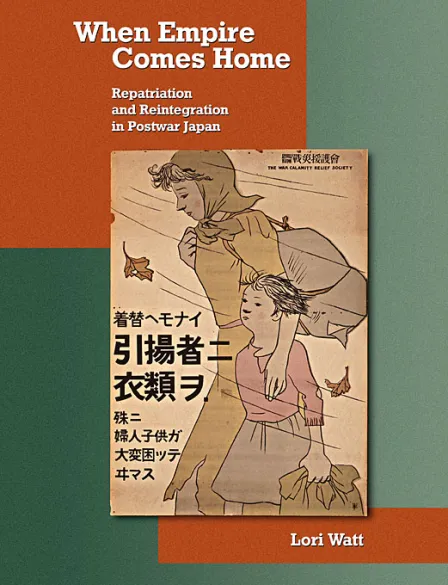Professor Watt specializes in Japanese history. In a current book project, she seeks to gain a better understanding of the Allied-managed population transfers throughout East Asia at the end of the World War II.
PhD Students
Professor Watt welcomes applications from prospective PhD students with an interest in the political and social history of 20th century Japan, especially on the themes of empire, decolonization, and internationalism. Please contact her by email in advance of submitting an application to discuss whether the program at WashU would be a good fit for you. Her current PhD advisees include Kim Lacey (Korean diaspora), Peihsu Lin (colonial Korea), and Ping Ting (colonial Taiwan).
Books
When Empire Comes Home: Repatriation and Reintegration in Postwar Japan. Cambridge, MA: Harvard University Asia Center, 2009
Articles
“Repatriation and Rhetoric: The End of Japan’s Empire in the World History of Decolonization.” In Sven Saaler and Christopher Hess, eds. The Handbook of Japanese Empire in East Asia. 2026
"East Asian Victimhood Goes to Paris: A Consideration of WWII-related Chinese, Japanese, and Korean Nominations to UNESCO's Memory of the World Project." In Historical Authenticity and Victimhood in Twentieth-Century History and Commemorative Culture, ed. Randall Hansen, Achim Saupe, Andreas Wirsching, Daqing Yang, 296-316. University of Toronto Press, 2021.
"Embracing Defeat, Eliding Empire in Post-colonial Seoul, Autumn 1945." Journal of Asian Studies February 2015
"A 'Great East Asian Meal' in Post-colonial Seoul, Autumn 1945." In Food and War in Mid-Twentieth-Century East Asia, ed. Katarzyna J. Cwiertka, 149-164. Aldershot: Ashgate, 2013
"Imperial Remnants: the Repatriates in Postwar Japan," in Caroline Elkins and Susan Pedersen, eds., Settler Colonialism in the Twentieth Century: Projects, Practices, Legacies. New York: Taylor and Francis, 2005, 243-255
"Tôhoku Dôhô: Haisengo Manshû ni okeru Nihonjin no sekai (The World of Japanese Refugees in Postwar Manchuria)." Higashi Ajia Kindaishi March 2003, 87-97


